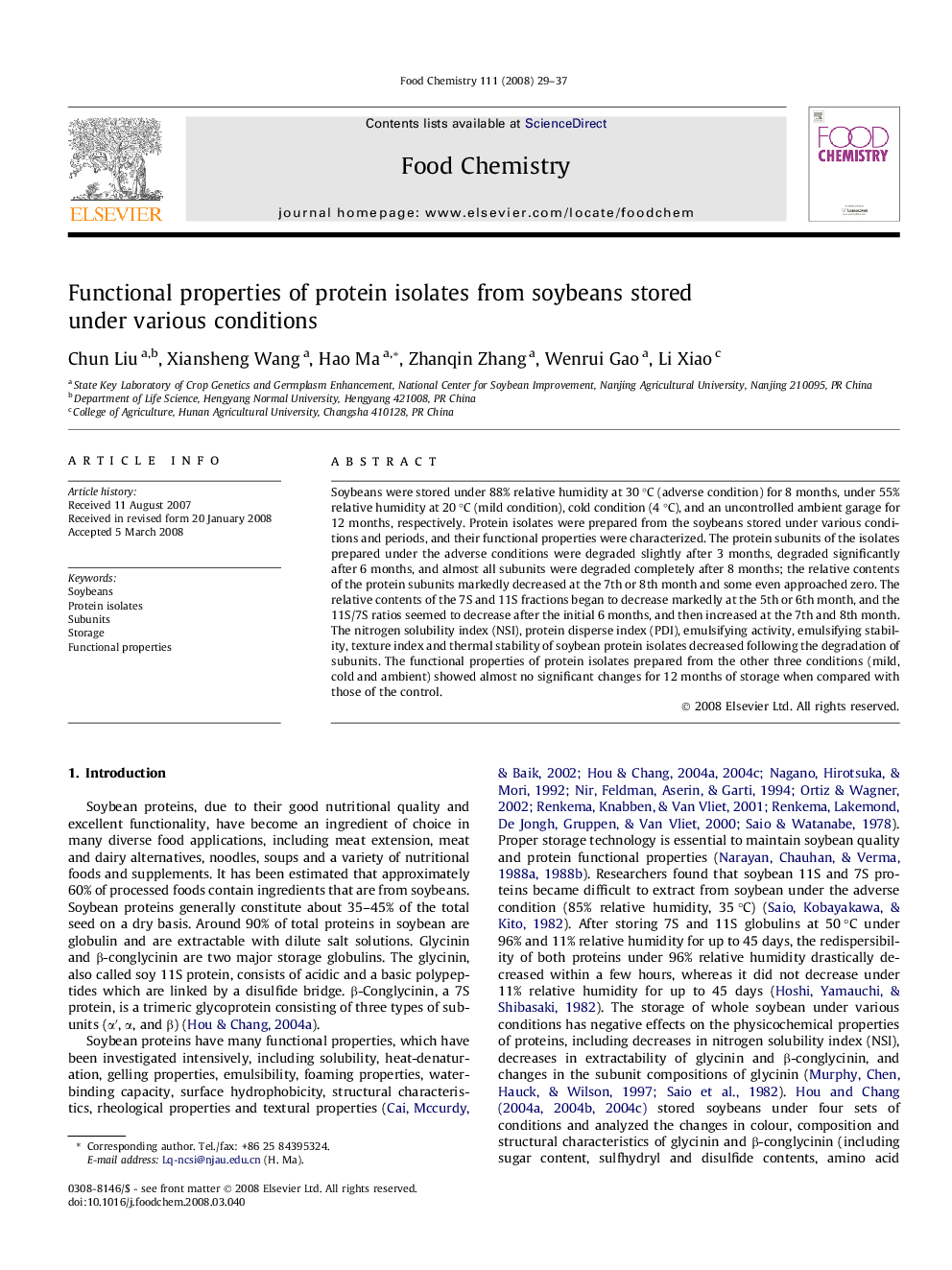| Article ID | Journal | Published Year | Pages | File Type |
|---|---|---|---|---|
| 1188307 | Food Chemistry | 2008 | 9 Pages |
Soybeans were stored under 88% relative humidity at 30 °C (adverse condition) for 8 months, under 55% relative humidity at 20 °C (mild condition), cold condition (4 °C), and an uncontrolled ambient garage for 12 months, respectively. Protein isolates were prepared from the soybeans stored under various conditions and periods, and their functional properties were characterized. The protein subunits of the isolates prepared under the adverse conditions were degraded slightly after 3 months, degraded significantly after 6 months, and almost all subunits were degraded completely after 8 months; the relative contents of the protein subunits markedly decreased at the 7th or 8th month and some even approached zero. The relative contents of the 7S and 11S fractions began to decrease markedly at the 5th or 6th month, and the 11S/7S ratios seemed to decrease after the initial 6 months, and then increased at the 7th and 8th month. The nitrogen solubility index (NSI), protein disperse index (PDI), emulsifying activity, emulsifying stability, texture index and thermal stability of soybean protein isolates decreased following the degradation of subunits. The functional properties of protein isolates prepared from the other three conditions (mild, cold and ambient) showed almost no significant changes for 12 months of storage when compared with those of the control.
